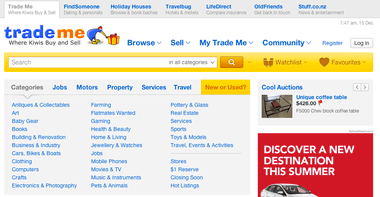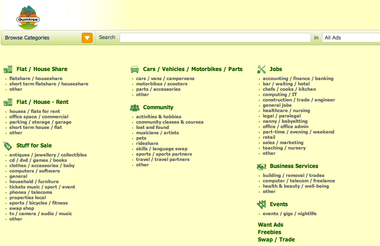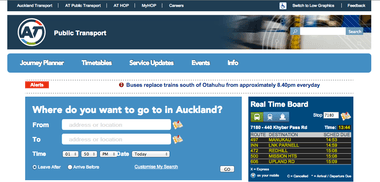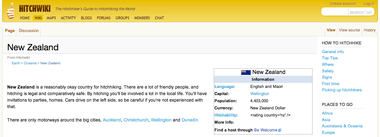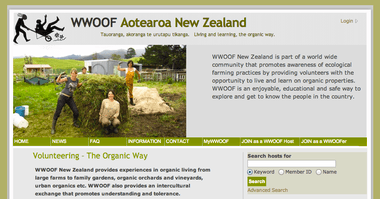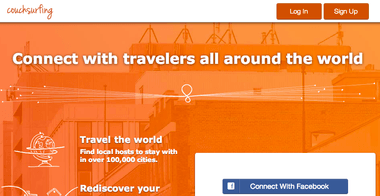My best tool for traveling? The Internet! I’ll show you all the sites you’ll need. Follow these tips and explore one of the most beautiful, friendly, diverse countries on Earth! (You can use many of these tips while traveling in other countries, too!)
Get informed.
The most expensive part of this venture will be your airline ticket. When I say I spent less than $500 in two months, I’m NOT including airfare. Even still, if I paid about $1600 and used all the techniques I’m sharing here, I could have spent a year traveling in New Zealand for less than $4600! New Zealand is unique in many ways (there are no naturally occurring mammals!), but two particular aspects make traveling especially inexpensive if you’re well-informed. First, the government has made major investments into boosting the tourism-driven economy. People come from all over the world, and New Zealanders want you to come. Secondly, as a country colonized by England, many of the citizens have relatives far away. It is common for New Zealanders in their early twenties to go live in other countries for a while to gain work and education experience and to connect with distant relatives.
Get a job.
New Zealand has worked with other governments to make this process very smooth, an arrangement called a “Working Holiday Visa.” This is a reciprocal arrangement, so that citizens of either country can apply for this visa for a limited time, and it allows the visa holder to have full employment privileges. In other words, you may be able to work in New Zealand for up to a year. One major caveat: you must be under 35 to secure a Working Holiday Visa. Now, even if you don’t get a visa or you are over 35, there is no need to worry. I’ve listed plenty of other strategies to save you money and make your time in New Zealand “Sweet as, bro!” I used BUNAC and highly recommend them:
Because of the robust tourist economy in New Zealand, it is incredibly easy to find work quickly. I landed in Auckland, and in two weeks I had a job paying $15NZ (~$12.29 USD at the time of publication) an hour and a room in a house with two young, fun New Zealanders. Because work is so easy to find, you can work for a few months to save up money, travel for a time, and find a new job somewhere else. Or you could get a job in your career field and travel on the weekends. I used these two websites, which are like Craigslist combined with eBay. I also found bikes, camping equipment, and tons of other stuff.
Trade Me
Auckland Gumtree
Pack light.
When I left for New Zealand, I had no idea what I was going to do or what to expect. The luggage I packed weighed the maximum limit of 70 lbs. Rather than being an advantage, this eventually became a burden because I had to store or keep up with all of that stuff. New Zealand is a country of islands, and each island has its own personality and flair. You will want to see as much as you can, and lugging around a bunch of junk isn’t worth it. When I was happiest, a had a large backpack and a small computer bag. Oh, and a ukulele. Buying clothes is expensive, but there are thrift shops everywhere. Macklemore’s paradise! I will say this: if you wear makeup, bring what you will need. Makeup in New Zealand is ridiculously expensive. $27NZ (~$22 USD at the time of publication) for a tube of mascara was the cheapest I could find.
Hitchhike like an expert.
While I lived in Auckland, I took public transportation, which was easy to navigate using the Internet. Each region has similar sites which are easy to find through simple searches. This one is AT Public Transport:
I bought a bike for $50NZ (~$40.97 USD at time of publication) that came with a helmet. It was a piece of junk, but it worked while I needed it. Gumtree also has a ride share board that is well-maintained and easy to use. The idea of hitchhiking seemed crazy to me. I’m a 5’1″ woman who grew up in America and was taught to never, ever to hitch a ride. But it eventually became second nature to me, and I frequently did it by myself. Hitching is legal in New Zealand, and I found it to be enjoyable because I met many local people who were just lovely and extremely generous. Get more tips at HitchWiki
Arrange work-trades.
A work-trade is when you put in about a half day of work in exchange for a place to stay for the night and three meals that day. No money is exchanged. By far, some of the best experiences I had in New Zealand came through work-trades. It allowed me to be in beautiful places, meet interesting people, learn new things, and spend next to nothing! This is the key strategy for traveling for a long time with very little money. I met people who had been doing it for years, going all around the world on next to nothing. I met a couple from the Bronx who were doing it for 6 months as their honeymoon! WWOOFing is the most organized system I’ve found for work-trades. It stands for Willing Workers On Organic Farms, and “farm” has a very loose definition in New Zealand. So does “work” and even “organic.” You may find a family with a large garden and a llama farm who would like you to come babysit and tutor their children in the evening. Or a meditation center that wants you to prepare lunch and dinner. I worked on an orchard pruning trees from 8 to noon, then had the rest of the day to bike into town and play. Learn more at WWOOF:
You can also find some work-trades on the two sites I listed above, TradeMe and Gumtree.
Do some couch surfing.
Couchsurfing gives me faith in humanity! The whole idea is to use the Internet to connect one person who has room in their home for a traveler who is looking for a place to stay. And it’s all FREE! The cardinal rule of the Couchsurfing community is that no money can exchange hands. You have to be willing to be social and flexible. And ideally, when you return home, you return the favor and host other travelers on your couch. Check it out at CouchSurfing:
Work at festivals.
New Zealanders love a good festival. Why pay to go when you can go for free? If you “work” a festival, many of them will give you full admission and feed you in exchange for a half day of work. You can meet wonderful people and have a great time for little cash. I spent New Year’s Eve on a beach in the Coromandel Peninsula drinking wine with other festival “workers” and then danced until dawn to live music on the main stage. Here are just a few I found with a quick search: NZ Festival Food and Wine Festivals Music Festivals NZ Splore 2014
Don’t be hostile to the hostel.
In the US, we stay in hotels and motels, but New Zealand is filled with hostels. A hostel is designed with the budget in mind. People share sleeping space, often getting a bunk in a dormitory room which can be single gender or co-ed. You share bathrooms. Plus, hostels have a large cooking space, with all the equipment, pots and pans, and a dining area. This makes it so you can cook for yourself and save money going to restaurants. Many hostels are run by long-term guests who cover the front desk or do housekeeping work in exchange for their lodging. This is another tip for saving money. I worked in a hostel that provided lodging and fed the workers. It was just outside of a ski resort, so many of the workers would then go skiing in the afternoon. Hostels can be family-run businesses, and some I found were so warm and welcoming. I feel in love at Albatross Backpackers in Kaikora! Find more hostels at Backpacker Hostels in New Zealand, Hostel World, and BBH New Zealand Backpacker
Learn my mantra.
Traveling on the cheap is a whole other ballgame than a luxurious vacation. While it requires a lot more work and compromise, you get back much more. It’s part personal development course, part cultural exchange, part adventure. Yes, you will need to do some planning, but once you get there and things start happening, all the planning may go right out the window. I had to learn a new mantra, and I suggest you start saying it now, “I’ll figure it out.” New Zealand is magical, and things just seemed to fall into place in ways I could never have planned for. You will figure things out or they’ll figure themselves out. Either way, you’ll have the time of your life. I did!
Say “Cheers!”
New Zealanders love this phrase. It has a million meanings, from “Thank you” to “Get away from me now.” (Yes, I know Aussies use it, too.) I wasn’t expecting to find an entirely different version of the English language, but I did. New Zealanders are beautiful people, honoring the cultures of the Maori natives and the Pakeha (people of European descent). Ask them for help, and they will gladly oblige. And don’t forget to say, “Cheers!” Please share your stories and travel tips in the comments section. Or let me know if you have questions, and I’ll see what I can do for you. Travel more, live more!

